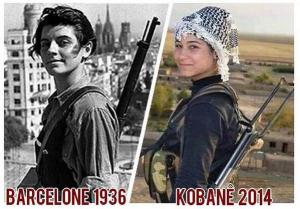 We are living in a world that for most people is broken and that has broken most people. It is not a god given world, but one that has been constructed by those in power and that has left most people mired in deprivation. Under COVID-19, this world has sunk to new lows.
We are living in a world that for most people is broken and that has broken most people. It is not a god given world, but one that has been constructed by those in power and that has left most people mired in deprivation. Under COVID-19, this world has sunk to new lows.
All is not lost though. There has historically been a section within the progressive movement – in different parts of the world and in South Africa – based around forms of radically democratic socialism that has not only tapped into the righteous anger of the working class, but has also sought to create a home and sense of belonging for people based on progressive values and principles such as mutual aid, solidarity and even love. If we want a better world, we need to revive the popularity of the types of politics, ethics, values, principles and practices that formed the essence – at their best – of such movements and update it for the context of the 21st century.
 Centred on the Congress of South African Trade Unions (COSATU), and within it, key unions like the National Union of Metalworkers of South Africa (NUMSA), the unions developed an ideological and strategic orientation described by scholars (e.g. Eddie Webster and Glenn Adler, 2000) as “radical reform” or “structural reform.” The thinking of the main unions in South Africa remains, to this day, profoundly shaped by the “radical reform” (RR) model.
Centred on the Congress of South African Trade Unions (COSATU), and within it, key unions like the National Union of Metalworkers of South Africa (NUMSA), the unions developed an ideological and strategic orientation described by scholars (e.g. Eddie Webster and Glenn Adler, 2000) as “radical reform” or “structural reform.” The thinking of the main unions in South Africa remains, to this day, profoundly shaped by the “radical reform” (RR) model.



